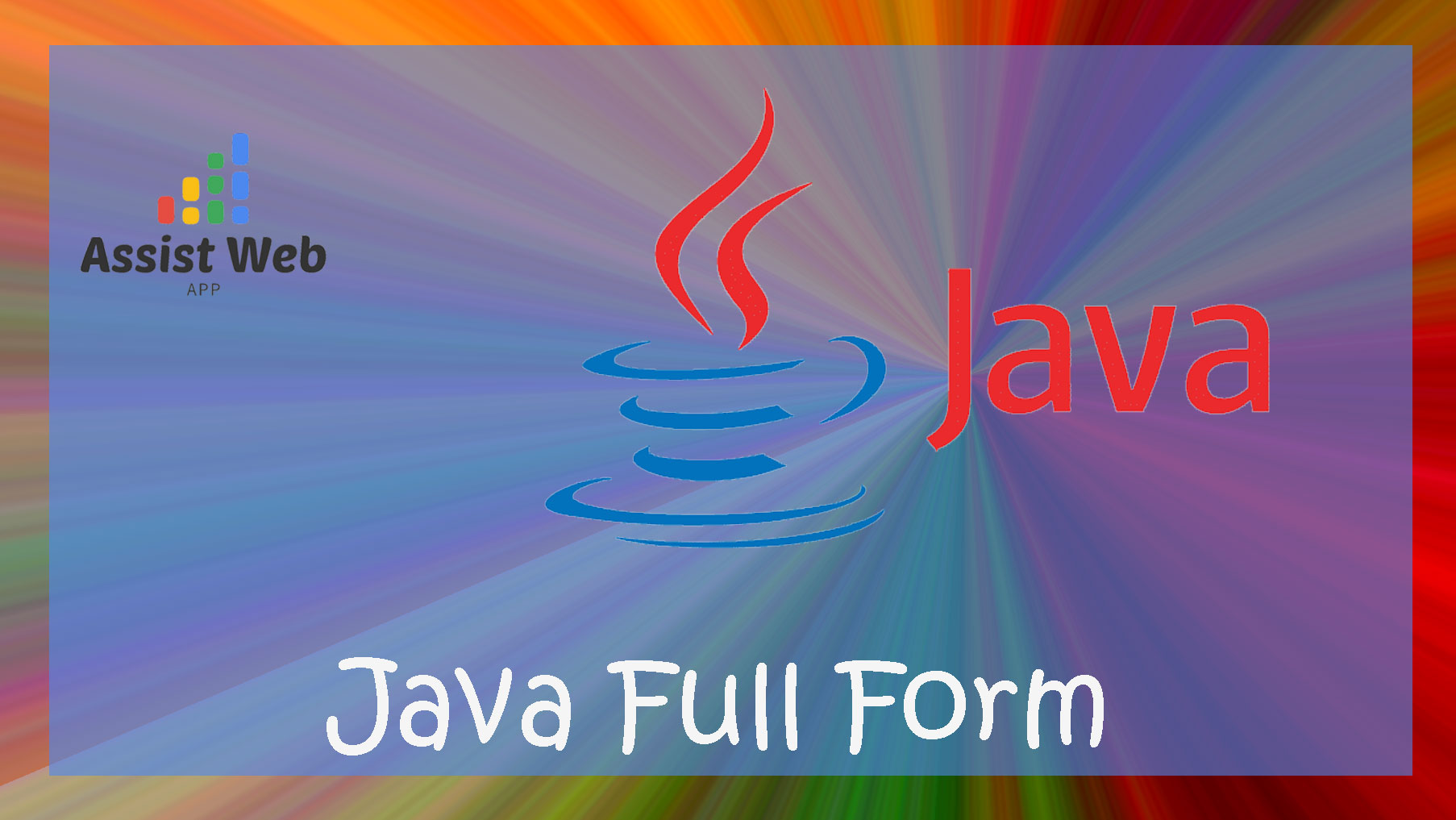
Unlocking the Mysteries of Java: Full Form, Significance, and Versatility
Unveiling the Essence of Java: More Than Just Code
Java Full Form:
When it comes to programming languages, Java stands out as a versatile and widely-used platform-independent language. But what does the term "Java" actually mean? Let's unravel the mystery behind its full form:
Java Full Form in English: Java is not just a cup of coffee; it's an acronym! The full form of Java is "Just Another Very Advanced." The name might suggest simplicity, but Java is anything but basic in the world of computer programming.
Java Full Form in Hindi: In Hindi, Java's full form is translated as "जस्ट अनदर वेरी एडवांस्ड," retaining the essence of its English counterpart. This translation echoes the language's commitment to being advanced and dynamic.
Beyond the Acronym:
Java is a powerful, object-oriented programming language that has left an indelible mark on the software development landscape. Originally developed by Sun Microsystems in 1995, it has since become a cornerstone for building a variety of applications, from web development to mobile applications.
Key Features of Java:
- Platform Independence: Java's "write once, run anywhere" philosophy allows developers to create applications that can run on any device with a Java Virtual Machine (JVM).
- Object-Oriented: Java follows the object-oriented programming paradigm, promoting modular and scalable code.
- Security: With built-in security features, Java is a preferred choice for applications where data protection is crucial.
- Rich API: Java boasts a vast Standard Edition (SE) library and Enterprise Edition (EE) APIs, offering developers a plethora of tools and functionalities.
Java in the Modern Computing Landscape:
As technology evolves, so does Java. It continues to be a preferred language for various applications, including Android app development, enterprise solutions, and cloud computing.
Whether you're a seasoned developer or just starting in the world of coding, understanding the full form of Java is just the beginning. Embrace the language, explore its features, and dive into the expansive world of Java programming.
In conclusion, Java is not merely an acronym; it's a dynamic force shaping the digital landscape, and its full form encapsulates its commitment to being "Just Another Very Advanced" language. So, the next time you take a sip of your coffee, remember that Java, in the realm of computers, is brewing much more than a warm beverage.
Frequently Asked Questions (FAQs) About Java:
- Q1: What is the full form of Java?
The full form of Java is "Just Another Very Advanced" in English, and in Hindi, it is translated as "जस्ट अनदर वेरी एडवांस्ड." It's an acronym reflecting the language's commitment to being advanced and dynamic.
- Q2: Is Java only used for programming?
While Java is primarily known as a programming language, it is also used for various purposes beyond coding. For instance, Java is employed in Android app development, enterprise solutions, and cloud computing.
- Q3: Why is Java considered a platform-independent language?
Java is platform-independent due to its "write once, run anywhere" philosophy. Code written in Java can be executed on any device equipped with a Java Virtual Machine (JVM), providing flexibility and portability.
- Q4: What are the key features of Java?
Some key features of Java include platform independence, object-oriented programming, built-in security measures, and a rich library of APIs (Application Programming Interfaces).
- Q5: When was Java first introduced?
Java was introduced by Sun Microsystems in 1995. Since then, it has evolved and grown in popularity, becoming one of the most widely used programming languages globally.
- Q6: How is Java used in mobile app development?
Java is extensively used in Android app development. Android Studio, the official integrated development environment (IDE) for Android, supports Java as one of the primary programming languages for building mobile applications.
- Q7: Can I use Java for web development?
Yes, Java can be used for web development. Java-based frameworks like Spring and JavaServer Faces (JSF) are popular choices for building robust and scalable web applications.
- Q8: Is Java still relevant in modern software development?
Absolutely! Java continues to be relevant in modern software development. Its versatility, strong community support, and constant updates have kept it at the forefront of technology.
- Q9: What is the role of Java in enterprise solutions?
Java is widely used in enterprise solutions due to its scalability, security features, and the availability of robust frameworks like Spring. Many large-scale applications and systems powering businesses are built using Java.
- Q10: How can I start learning Java?
To start learning Java, you can explore online tutorials, enroll in Java programming courses, and practice coding through hands-on projects. Additionally, there are numerous books and documentation available for beginners to advanced learners.
Recent Posts
- Basic to Advanced JavaScript & React.js Syllabus
- Gemini Google AI: Your Powerful Multimodal AI Assistant
- Turbocharge Your Downloads: Enabling Parallel Downloading in Chrome
- Cracking the Code: Mastering JavaScript Interview Questions - Top 50 Q&A for Web Developers
- Demystifying MEAN Stack: A Comprehensive Guide to MongoDB, Express.js, Angular, and Node.js